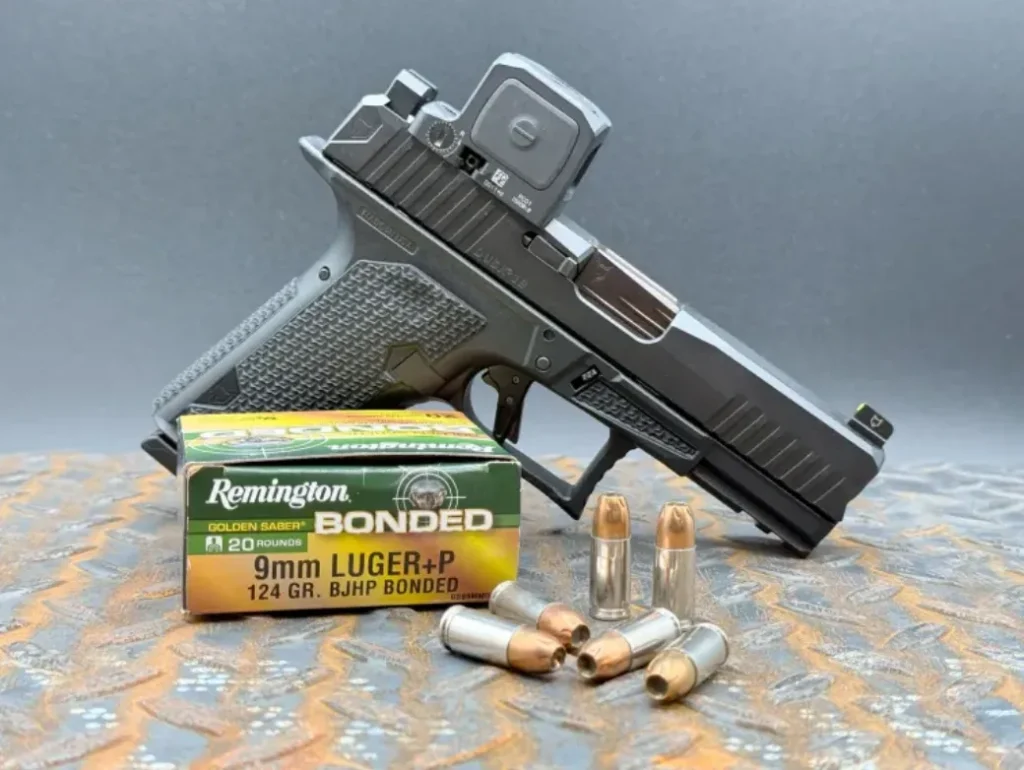Choosing the right ammunition for your pistol is one of the most important decisions a shooter can make. Whether you’re training, competing, or preparing for self-defense, your choice of ammo affects performance, accuracy, and safety. The 9mm Luger cartridge is among the most widely used for handguns around the world. Understanding how to match this versatile round to your shooting goals will help you get the most out of your firearm.
Contents
The Basics of 9mm Luger Rounds
9mm ammo, also known as 9mm Luger or 9x19mm Parabellum, is a rimless, centerfire cartridge designed specifically for pistols. It is commonly available in a variety of bullet weights and types, each suited for different applications. From lightweight training rounds to heavy subsonic loads, 9mm Luger pistol ammo is known for its balance of power, recoil control, and magazine capacity. This makes it a top choice for civilian, law enforcement, and military use.
Training and Practice
Reliability and cost should be your top concerns when selecting ammo for regular practice. Full Metal Jacket (FMJ) rounds are the standard for training because they feed reliably and are widely available at a lower cost per round. FMJ bullets are typically offered in 115-grain and 124-grain options, which are ideal for high-volume range sessions. Using consistent training ammo helps improve muscle memory and accuracy over time.
Choosing lighter grain FMJ rounds can reduce felt recoil, making practice more comfortable for extended periods. If you’re new to shooting or working on rapid-fire drills, this can improve control and endurance. Many indoor and outdoor ranges allow FMJ rounds, but it’s wise to check local rules, especially regarding lead and steel-core bullets. Practice with the same weight you plan to carry or compete with whenever possible.
Home and Self-Defense
Defensive shooting calls for more specialized ammunition. Jacketed Hollow Point (JHP) rounds are the standard for personal protection due to their ability to expand on impact, creating a larger wound channel while minimizing the risk of over-penetration. When it comes to 9mm Luger pistol ammo, options like 124-grain and 147-grain JHP loads are popular choices for concealed carry and home defense. These rounds are engineered to stop threats quickly and safely.
Always test your defensive ammo in your carry firearm to ensure reliability. Some pistols may have issues feeding certain bullet profiles, and it’s essential that your gun cycles every round without fail. While +P (higher pressure) variants offer increased velocity, not all pistols are rated for them, so be sure to consult your firearm’s manual. Training with a few magazines of your defensive load also builds familiarity with its recoil and feel.
Optimizing 9mm for Competitive Use
If you’re involved in shooting sports, your choice of ammo should support speed, control, and consistency. Many competitors favor heavier 147-grain loads for their softer recoil impulse, which can improve shot-to-shot recovery. Accuracy becomes a major factor here, and match-grade 9mm Luger ammo is often selected for its tight tolerances and performance under pressure. Choosing ammo that meets competition power factor requirements is also important.
In IDPA and USPSA sports, reliability and smooth cycling are crucial. Subsonic rounds are popular in suppressed competition setups due to their quiet report and recoil characteristics. Testing your ammo ahead of time in your specific competition gun helps avoid malfunctions on match day. Even small changes in bullet weight or velocity can affect your overall rhythm and scoring.
Before buying in bulk or trying new loads, check your pistol’s specifications to ensure compatibility with the ammo you plan to use. Some compact pistols may perform differently with heavier rounds or higher pressures. Also, when selecting 9mm ammo, consider storage, local range policies, and how often you plan to shoot. Choosing the right load helps ensure greater consistency, confidence, and safety every time you shoot.
